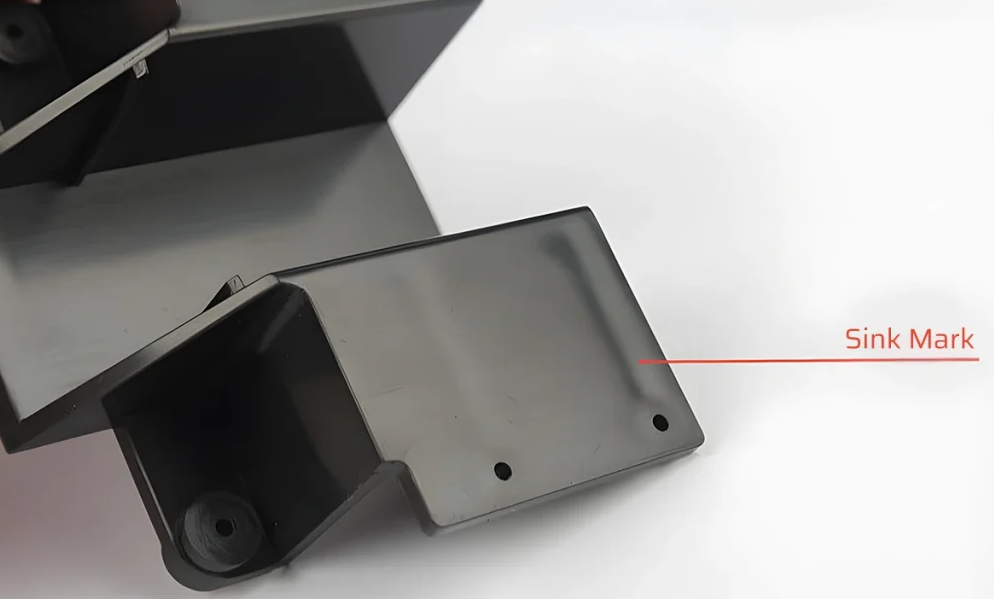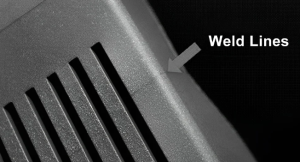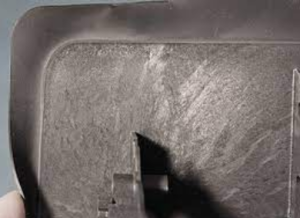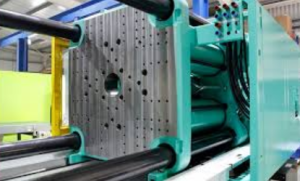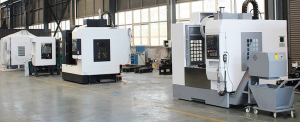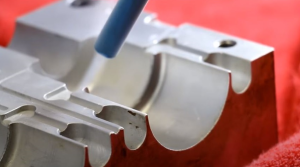Avoiding sink marks in injection molding is crucial for achieving high-quality plastic parts with uniform surface appearance and dimensional accuracy. Sink marks typically occur due to uneven cooling and shrinkage of molten plastic inside the mold cavity. Here’s a detailed guide on how to avoid sink marks in injection molding:
1. Design Considerations
- Uniform Wall Thickness:
- Maintain consistent wall thickness throughout the part design. Variations in thickness lead to uneven cooling rates and differential shrinkage, causing sink marks.
- Use design guidelines that recommend adequate thickness to ensure proper flow and cooling of the plastic material.
- Avoid Sharp Corners and Edges:
- Round or fillet sharp corners and edges in the part design. Sharp features can create stress concentrations and uneven cooling, leading to sink marks.
- Incorporate generous radiuses or chamfers at transitions between thick and thin sections to promote uniform shrinkage.
- Rib Design:
- Use ribs or internal features to reinforce sections where thicker walls are required. Properly designed ribs can distribute stresses and reduce the likelihood of sink marks.
- Gating and Runner System:
- Optimize gate and runner design to facilitate uniform flow of molten plastic into the mold cavity.
- Properly position gates to minimize flow restrictions and ensure balanced filling of the cavity, reducing the risk of sink marks.
2. Mold Design and Tooling
- Cooling System:
- Design molds with an effective cooling system that evenly dissipates heat throughout the mold cavity.
- Ensure adequate cooling channels and proper placement to maintain consistent temperature and reduce uneven cooling that causes sink marks.
- Surface Finish:
- Use a textured mold surface finish or matte finish to reduce surface tension and promote uniform cooling.
- Avoid highly polished mold surfaces, which can increase the likelihood of sink marks due to slower cooling rates.
- Venting:
- Incorporate venting channels in the mold to allow trapped air to escape during the injection process.
- Proper venting prevents air pockets from forming, which can cause localized shrinkage and sink marks.

Choose us for your custom injection molding needs and experience excellence in every detail. Our China-based factory provides innovative solutions, competitive pricing, and fast turnaround times. Get your custom quote now!
3. Injection Molding Process Optimization
- Injection Parameters:
- Optimize injection speed, pressure, and temperature settings to achieve uniform filling and packing of the mold cavity.
- Avoid overly high injection pressures that can induce internal stresses and contribute to sink marks.
- Gate Size and Location:
- Use appropriately sized gates to facilitate smooth flow of molten plastic into the cavity.
- Position gates to minimize flow length and pressure drop, ensuring uniform pressure distribution and reducing sink mark formation.
- Cooling Time and Pressure Holding:
- Set adequate cooling times to allow the part to solidify uniformly without premature ejection.
- Implement pressure holding to compensate for material shrinkage during cooling, reducing the formation of sink marks.
4. Material Selection
- Shrinkage Characteristics:
- Select plastic materials with lower shrinkage rates or materials that exhibit uniform shrinkage properties across the part.
- Consider using materials with additives or fillers that minimize shrinkage and improve dimensional stability.
5. Post-Molding Considerations
- Part Orientation and Ejection:
- Orient parts within the mold to minimize stress concentrations and uneven cooling.
- Use ejector pins and systems that apply uniform force to eject parts without causing deformation or sink marks.
- Inspection and Quality Control:
- Inspect molded parts for sink marks immediately after ejection.
- Implement quality control measures to monitor sink mark formation and identify potential causes for corrective action.

As a leading mold injection manufacturer in China, we deliver superior molds for various industries. Our state-of-the-art facilities and expert team ensure top-notch quality and timely delivery. Contact us now for a competitive quote!
Conclusion
By integrating these design considerations, mold design strategies, process optimization techniques, and material selection criteria, manufacturers can effectively prevent sink marks in injection-molded parts. Addressing potential issues early in the design and development stages and continuously optimizing the injection molding process are key to achieving high-quality parts with minimal defects and consistent surface finish.
Related Conten: Expert Large Plastic Molds Manufacturing

